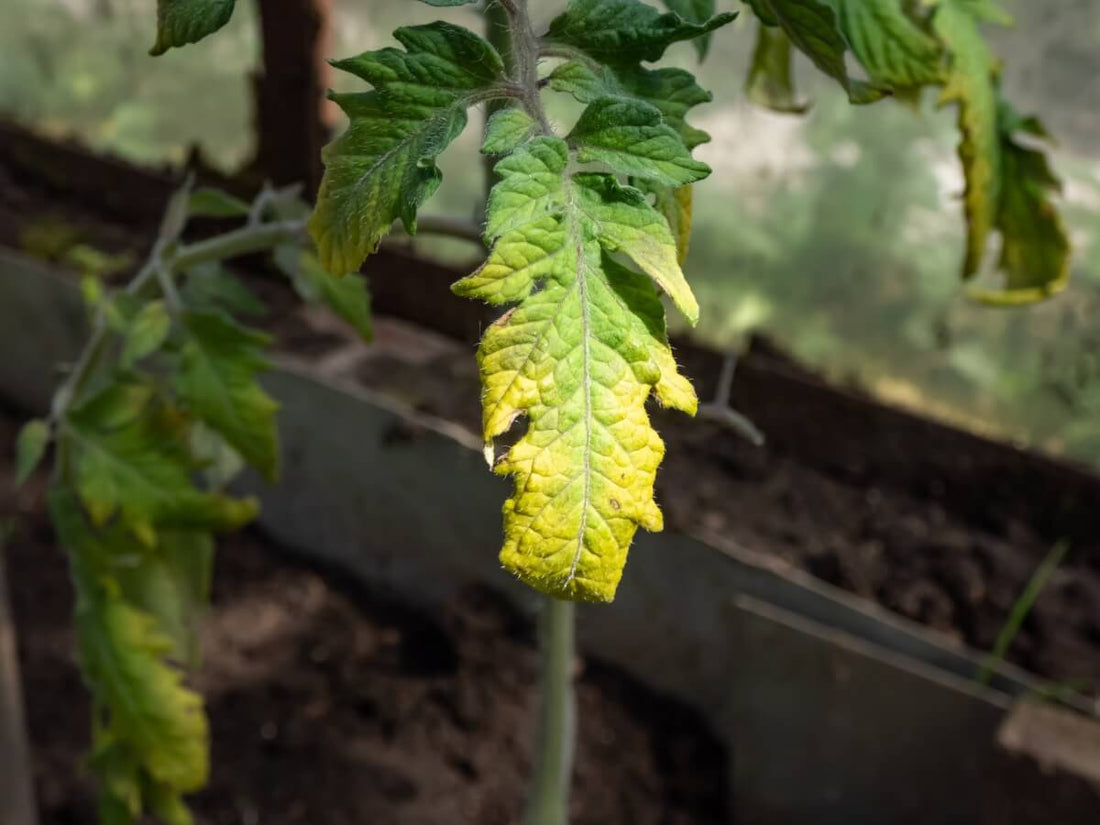The biggest problem with soil fungus is you can not see it till it starts affecting your plants' health. Hence it is better to maintain healthy garden soil before planting.
In this guide, we'll explore the various causes of fungus in soil and plants, learn how to identify fungal intruders, and then delve into practical and natural methods to eliminate and prevent fungal issues in your home garden.
Understanding the Causes of Fungus in Soil and Plants:

Poor Drainage:
Stagnant water around plant roots is a breeding ground for fungi. Compacted soil or containers without proper drainage magnify this issue.
Overwatering:
Too much love in the form of water can drown your plants and create a favourable environment for fungal growth.
Lack of Air Circulation:
Crowded plants impede air circulation, providing a conducive environment for fungi to thrive.
Nutrient Imbalance:
An imbalance in soil nutrients can weaken plants, making them more susceptible to fungal infections.
Damp Weather Conditions:
Just like plants, the fungus also likes moist, wet weather conditions. Hence it can creep up during the rainy season.
Identifying Fungus: 5 Quick Ways

- Unusual Spots or Patches: Look for discoloured spots like rust or a powdery substance on leaves – classic signs of fungal presence.
- Wilting or Yellowing Leaves: Fungi can disrupt plant nutrient flow, leading to leaf wilting or yellowing.
- Moldy Smell: A distinctive, musty odour around your plants can indicate the presence of mould or fungus.
- Stunted Growth: If your plants are not growing as expected, it might be due to a fungal infection affecting their root system.
- White, Thread-Like Growth: The appearance of white, thread-like structures around the base of plants is a telltale sign of root fungus.
Preventive Measures to Keep Fungus at Bay:

Crop Rotation:
Rotate your crops annually to disrupt the life cycle of soil-borne fungi, reducing the risk of recurring infections. Crop rotation simply means not planting the same things in one location year after year.
Cleaning Up Debris:
Remove dead plant material and fallen leaves regularly to eliminate hiding spots for fungi.
Getting Rid of Sick Plants:
Promptly remove and dispose of plants showing signs of illness to prevent the spread of fungi.
Improved Airflow and Sunlight:
Space out plants to enhance air circulation and ensure they receive adequate sunlight, creating an environment hostile to fungi.
Pruning:
Regularly prune your plants to remove affected parts and encourage healthy growth. Dispose of pruned material carefully.
Learn all about pruning your veggies and herbs with our easy-to-follow guide.
Natural Homemade Remedies to Treat Fungus on Plants:

Milk/Buttermilk Spray:
Mix one part milk or buttermilk with nine parts water and spray on affected plants. The proteins in milk act as antifungal agents.
Baking Soda and Soap Water:
Create a solution with 1 teaspoon of baking soda, a few drops of mild soap, and water. Spray this mixture on affected plants to control fungal growth.
Chamomile Tea:
Brew some chamomile tea, let it cool, and use it as a foliar spray. Chamomile's antifungal properties can help combat various fungal issues.
Cinnamon Powder:
Dust cinnamon powder on the soil surface to inhibit fungal growth. Cinnamon also has antifungal properties that can benefit your plants.
Neem Oil:
When treating plant problems naturally, there’s no better panacea than Neem Oil. Neem oil, a natural fungicide and pesticide can be diluted and sprayed on plants to control fungal infections.
Apple Cider Vinegar:
Mix 2 tablespoons of apple cider vinegar with a gallon of water and use it as a spray. This solution can help manage fungal problems effectively.
Creating and maintaining a thriving garden involves detective work and a proactive approach. By understanding the causes, identifying signs, and implementing preventive measures and natural remedies, you can ensure your home garden remains a lush, green sanctuary free from the clutches of fungus. Embrace these simple practices, and watch your garden flourish with vitality and life.


 Sign In
Sign In









Let us know your feedback
* Comments must be approved before being displayed.